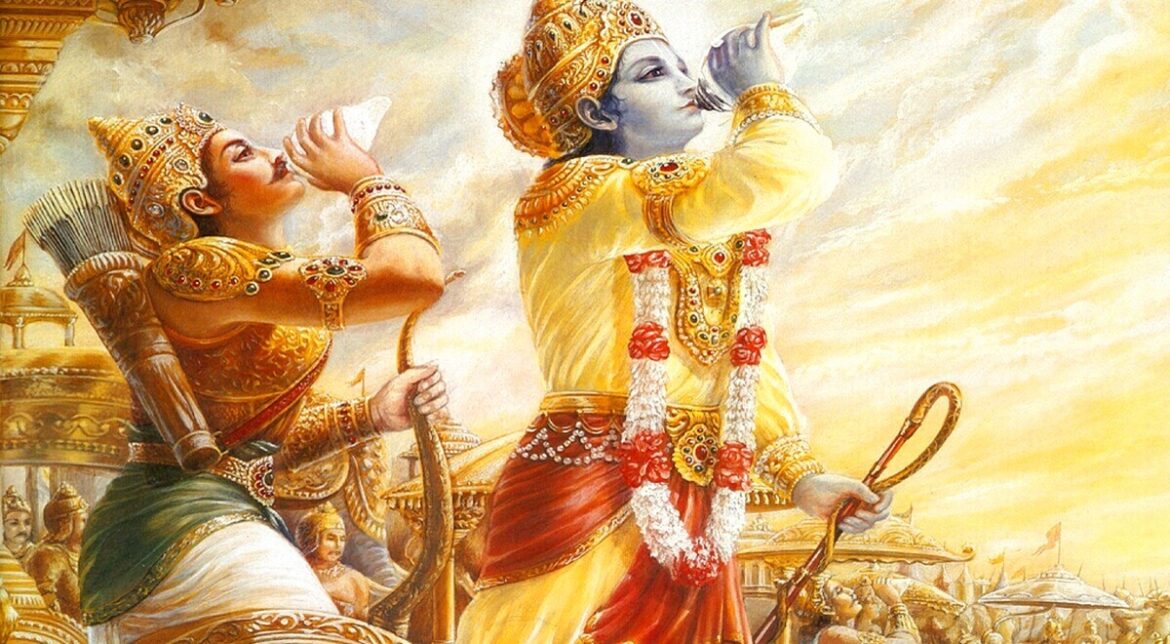One of the greatest treasures of Indian culture is the Mahabharata, a colossal epic work that explores the depths of the human soul while telling an exciting story. Mahabharata is not only a complete philosophical system, but also the essence of Indian religion and culture. Vyasadeva (the literary incarnation of Lord Krishna) put this monumental work down in writing about 5000 years ago, at the beginning of Kali Yuga. It is the world’s longest known verse, consisting of 100 000 stanzas (sloka), 200 000 lines, and 1.8 million words. It is about 15 times longer than the Bible, and a lighter reading than, for example, the texts from the four Vedas. This is why it is a recommended reading for the ones just getting to know Vedic knowledge, as the exciting story appeals to us much more, than the bald and hard to understand philosophy of the Vedas.
The story in a nutshell:
The story begins with the king of Shantanu, Lord of Hastinapur. He married the goddess Ganga and had a son, Bhishma, one of the most prominent figures in the Mahabharata. Ganga left the king and his son to fulfil her sacred duty. Shantanu later married Satyavati. Two sons were born, then three grandchildren: Dhritarashtra, Pandu and Vidura.
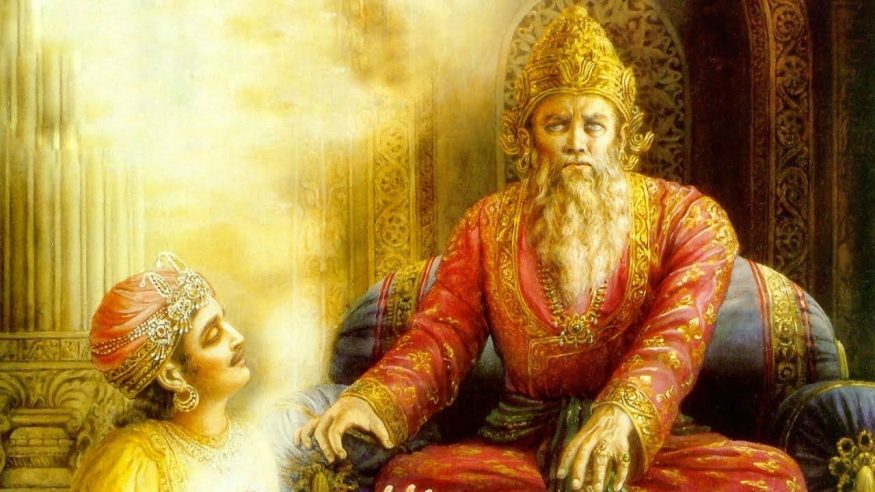
At the beginning of the story, Pandu is the king who is experienced in warfare and archery. His brother Dhritarashtra was the older, but he could not be king because he was born blind. The political and social affairs of the Kingdom were conducted smoothly under Pandu’s authority. But due to an unexpected event, Pandu decided to hand over state affairs to his blind brother Dhritarashtra and went into the woods for a while with his two wives.
Pandu had two wives: Kunti and Madri. Five sons were born: Yudhishthira, Bhima, Arjuna, Nakula and Sahadeva (they are the Pandavas). The boys are children of five demigods, because a curse prevented Pandu from becoming a father. Kunti received a mantra from a Saint as a girl, with which she could call the demigods and ask for a blessing from them. But it was a secret to everyone that Kunti as a girl had become the mother of a boy named Karna, thanks to the mantra. When Pandu and his other wife Madri died, Kunti returned to the Kingdom with the five Pandava boys.
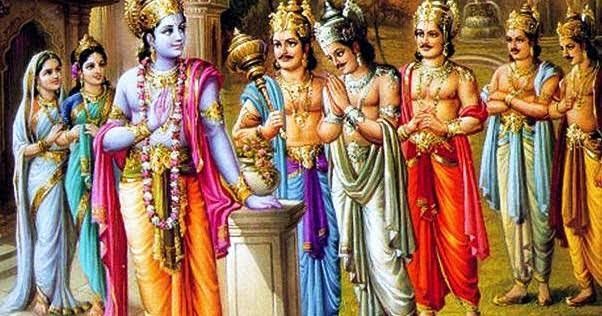
Dhritarashtra married princess Gandhari. They had one hundred sons (called Kauravas) and one daughter. According to the sacred text, the Kauravas were human incarnations of demons. The Kauravas were jealous and maltreated their cousins, the Pandavas. Yudhishthira, the eldest of the Pandavas would have been eligible for the throne because he was older than Duryodhana. Duryodhana, the oldest of the Kauravas, could not accept this. There was hostility between the cousins. This went to the extent that the Kauravas conspired and devised a plan to kill the Pandavas by burning a castle made of fire-hazardous materials. Although this plan failed, the Kauravas did not give up and desperately wanted to destroy the Pandavas.
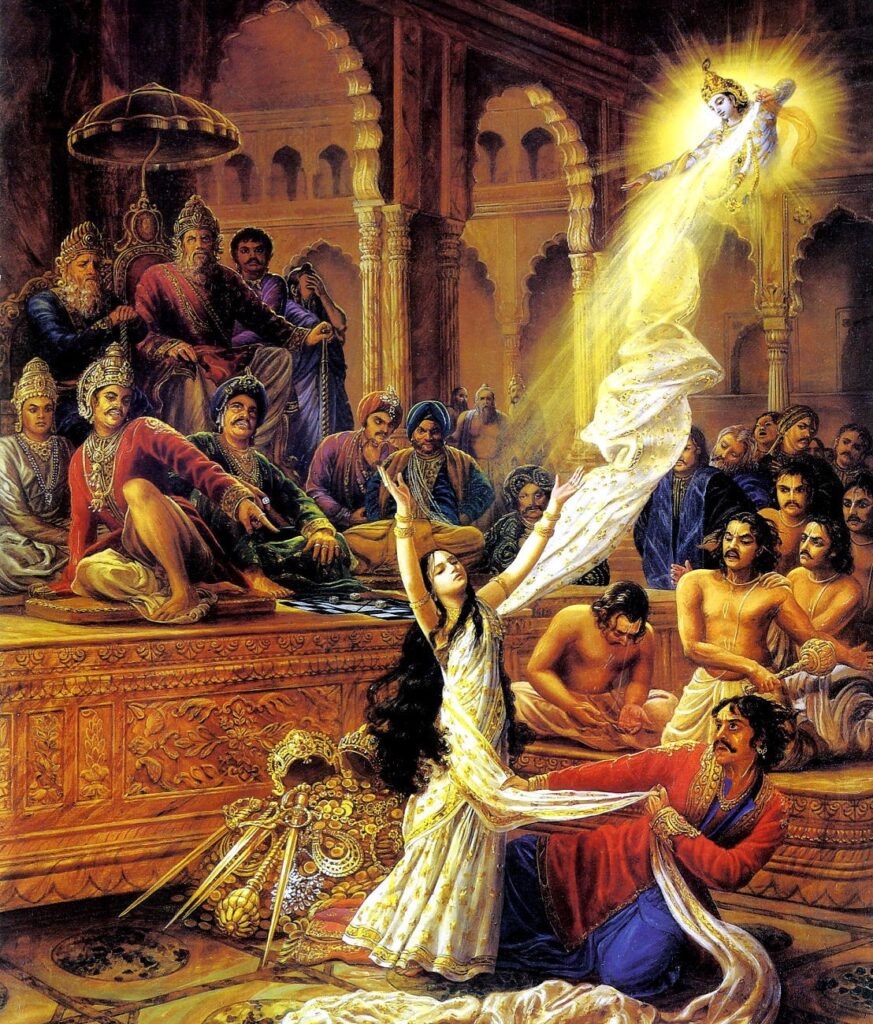
The Pandavas were trapped by Duryodhana’s uncle Sakuni in a dice game called Chaturanga. Yudhishthira was invited to play and lost his Kingdom and all his possessions due to the frauds committed during the game. This was not enough for the Kauravas; they sent the Pandavas into exile for 12 years. This was made even worse by the fact that the Kauravas treated Draupadi, the wife of the Pandavas, with great humiliation during the dice game. These events led to the war between the Pandavas and the Kauravas. When the Pandavas returned from exile to the Kingdom, Duryodhana refused to return the Kingdom to the Pandavas and was ready to fight for it. Although the Pandavas offered a peace treaty, the Kauravas rejected all proposals.
Finally, the story culminates in the battle of Kurukshetra, where the cousins fight each other. In this battle, many kingdoms allied with the Pandavas and the Kauravas. After 18 days of horrific massacre, the Pandavas survived and won the battle but lost close friends and loved ones.
At the end of his life, Yudhishthira was again tested when he reached the gates of heaven. He was asked to decide if he’d go to heaven for a happy eternity without his brothers, or to join them in hell. He did not know that his brothers were already in heaven, and this was only a test to challenge Yudhishthira’s character. He decided to stay with his brothers wherever they were.
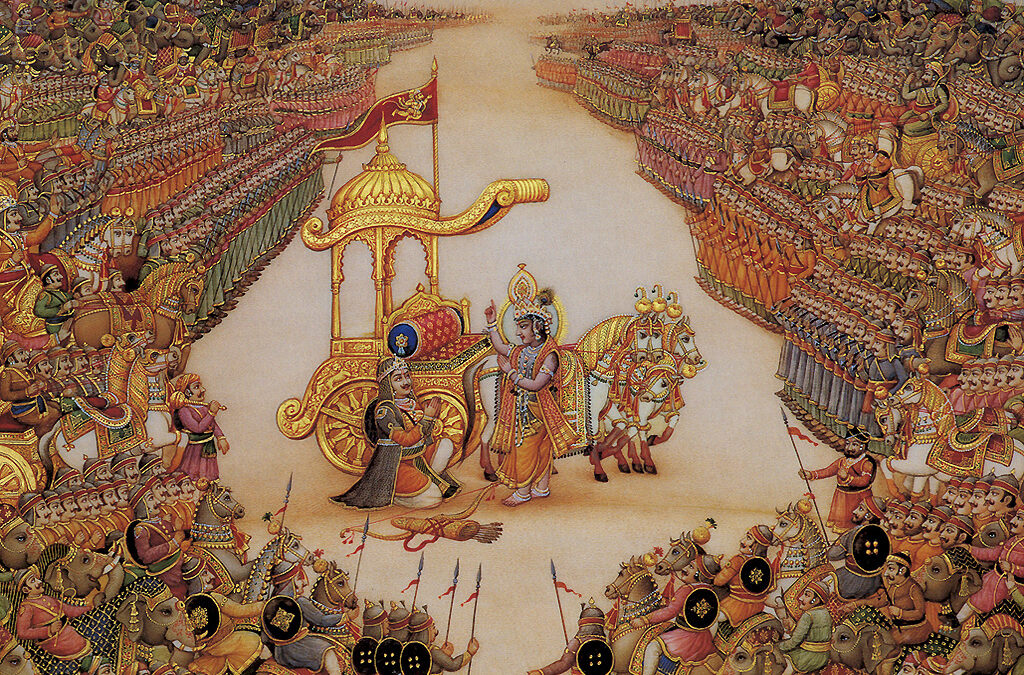
The other main character of the Mahabharata: Krishna, a dear friend and adviser to the Pandavas. Krishna also takes on the role of the wise teacher, who provides guidance and wisdom when the most profound questions about the nature of the human soul are to be answered. One of the most well-known parts of the Mahabharata is the Bhagavad Gita, in which the dialog between Krishna and Arjuna sheds light on the fundamental questions of life and human existence.
Bhagavad Gita is also a spiritual guide that emphasizes the importance of karma, duty and devotional service. The teachings of Krishna encourage people to act in a selfless way for Him, not for the reward or the fruit of their actions. The devotional and faithful service of Krishna leads to absolute happiness and enlightenment.
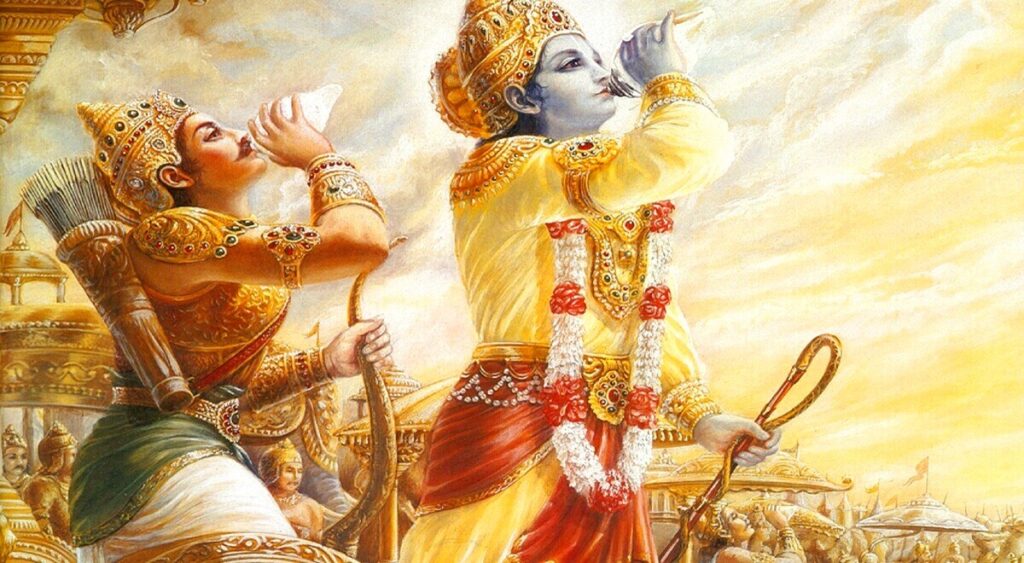
The Mahabharata teaches us that good always triumphs over evil, we ought to lead a righteous life, and that we must do our duty (dharma) correctly. These difficult moral and ethical topics are embedded in interesting, well-turned stories that make it easier to understand and digest. The Mahabharata contains the knowledge by which people can live meekly, but enriched, satisfied, and in a spiritually developed way.
The general principle of the work is of passion. The message is that attachment to sensual pleasures and fame does only make problems. Whatever problems arise in the life of a living being, it is always due to lust, anger, greed, attachment, madness, and illusion. Ability to control the senses is crucial for the appropriate use of power.
The Mahabharata is the play of God, Lord Krishna, which he arranged to execute his plan. Krishna always pursues his pastimes with his eternal companions, and the reason for his incarnation is the protection of his followers, the destruction of demons, and the restoration of the principles of religion.
Just as the Pandavas chose Lord Krishna as their leader, it is desirable for us also to surrender ourselves and our lives to Krishna as our best benefactor.
Hare Krishna!



